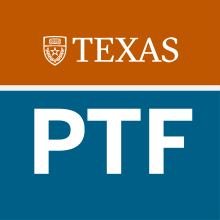Individual Fellow Initiatives

Cola Interdisciplinary Program Instructors' Community of Practice
Cohort: 2022
Fellow: Elon Lang
There are two main issues that this project hopes to address. The first is the student and instructor malaise that
has been noticed by educators and administrators across our whole campus since the return to face-to-face

The “Social/Wellness Module:” Providing Space for Wellbeing and Social Learning for Incoming UT Students
Cohort: 2022
Fellow: Marina Alexandrova
My project addresses the lack of built-in social/wellness-oriented interactions in introductory courses for

Pharmacy Practice Lab Redesign
Cohort: 2020
Fellow: Ashley Castleberry
The College of Pharmacy is embarking on one of the biggest curricular revisions in the past decade by creating a Pharmacy Practice Lab sequence spanning all six semesters of our didactic program. The course series will combine content from seven existing courses in order to decrease redundancy and duplication to create increased alignment and reinforcement. Rather than students learning content within “the silo” of a single course, students will be required to retain and apply their knowledge and skills throughout the entire curriculum.

Building Information Modeling (BIM) as a Proxy for Project-Based Learning Integration across the Architectural Engineering Undergraduate Curriculum
Cohort: 2019
Fellow: Fernanda Leite
The University of Texas at Austin’s Civil, Architectural and Environmental Engineering (CAEE) department has taken several steps towards improving the preparation of Architectural Engineering students with respect to modern engineering tools, including the computing tools commonly used in engineering practice.

Addressing Population Health through Interprofessional Community Engagement
Cohort: 2018
Fellow: Veronica Young
Pharmacists are an integral member of the health care team, trained to provide care based on evidence. However, the nationwide call-to-action to transform the delivery of care requires a cultural shift in educating students in health professions programs. The rapidly evolving health ecosystem mandates practitioners to work collaboratively in teams to provide person-centered and population oriented care.

Strategic Course Redesign Focused on Professional Skills
Cohort: 2018
Fellow: Kristin Patterson
The goal of this project is to shift the focus of a set of introductory courses, that are heavy in disciplinary content, in order to make space for greater emphasis on professional skills, such as information literacy, quantitative reasoning, communication, and others. The main challenge in accomplishing the goal is that the particular courses involved have high-enrollment—2300 undergraduates enroll in each course each year and they are taught by a team of 13 faculty. Because many faculty teach the courses, it is difficult to standardize the curriculum and the expectations across sections.

Data Analysis Tools: Integrating Computational and Statistical Techniques in the Environmental Engineering Curriculum
Cohort: 2018
Fellow: Paola Passalacqua
The goal of this project is to train the next generation of environmental engineers in computing and statistical techniques to solve big data problems. Current undergraduate students in the Department of Civil, Architectural and Environmental Engineering have little to no exposure to computational and statistical methods for data analysis (e.g., big data collected from sensor networks). I proposed to integrate computational techniques in several courses throughout the Environmental Engineering Degree.

Curriculum Integration Through a 4-year Design Project and Cross-course Educational Tools
Cohort: 2017
Fellow: Matthew Balhoff
In many curricula students find it difficult to understand the common thread and themes between their courses until near graduation (or ever). Thus, students are unable to benefit from the synergistic nature of a fully integrated program. Courses are taught by different instructors with different teaching styles and nomenclature (a potentially good thing), but all too often even the instructors are unaware of the material or educational objectives taught in complementary courses.

CREEES Fusion Room: an Interdisciplinary Digital Workshop
Cohort: 2016
Fellow: Mary Neuburger
This project entailed the creation of a curricular context and physical space for collaborative interdisciplinary teaching and research for faculty and students interested in Russian, East European and Eurasian studies. This was achieved in two ways. First, I transformed the required gateway course to our major, “Introduction to Russian, East European and Eurasian Studies,” which had been a disjointed “parade of faculty” course with disconnected guest speakers.

